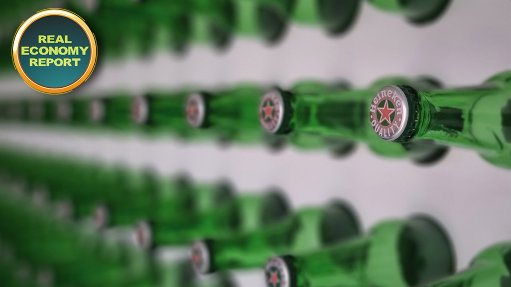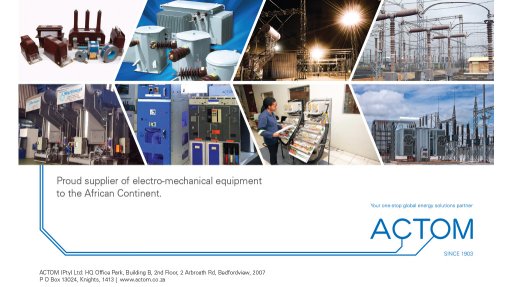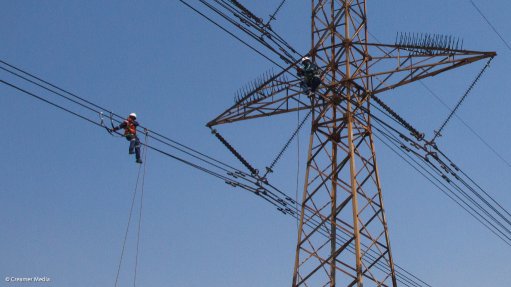World Plastics Council and Global Plastics Alliance members call on South African government to help secure a treaty to end plastics pollution
This article has been supplied.
Building circularity into entire life cycle of plastics and waste management key to successful agreement
Ahead of the final scheduled round of negotiations on an international treaty to end plastics pollution, the World Plastics Council (WPC) and members of the Global Plastics Alliance (GPA) are calling on national governments to agree to an ambitious and implementable agreement that dramatically scales up waste management and recycling.
At the fifth session of the Intergovernmental Negotiating Committee (INC5), due to start in Busan, South Korea, on Monday 25 November, negotiators from national governments will need to reach agreement on a number of important topics including the model by which the internationally legally binding instrument (ILBI) will enable countries to tackle plastics waste. In this context, the WPC and GPA are calling for negotiators to reach an agreement that respects the needs of different countries while establishing a common framework to end plastic pollution by 2040.
Benny Mermans, Chair of the WPC, said: “Countries face very different challenges and require different solutions. A one-size-fits-all global approach to policy and regulation cannot work. The treaty should therefore provide each country and region with the flexibility to meet the objectives of the agreement in ways which make most sense for them.”
The final agreement should strike the right balance between global obligations and national measures. It should require countries to develop national action plans so they can deploy tailored solutions most effective for their circumstances. Mandatory recycled content targets for sectors that use plastics at the national level, for example, will increase the value of plastic waste as a circular feedstock by increasing demand for circular plastic raw materials. Those plans should have common elements and reporting requirements that hold countries accountable for tracking progress and creating the demand signals to spur investment in collection, sorting and recycling.
Deidre Penfold, Executive Director of CAIA said: “Transitioning to a circular plastics system, in which all plastics applications are reused, recycled, and responsibly managed, rather than discarded, is key to tackling the problem of plastic waste. The transition to a circular economy will reduce GHG emissions, increase resource efficiency, enhance economic development, and create jobs, especially in countries with less developed waste management and recycling infrastructure.”
Anton Hanekom, Executive Director of Plastics SA representative at the Global Plastics Alliance - continued: “Building circularity into the entire life cycle of plastics - from design to recycling to responsible end-of-life – and developing fit-for-purpose waste management system should be the cornerstone of the agreement. The most effective way to achieve the objectives of the agreement, while maintaining the utility that plastics offer society, is to make plastic waste a commodity with real value.”
Plastics enable wind and solar power, improve the efficiency of buildings and transportation, preserve food, improve infrastructure, and make modern healthcare possible. The treaty must therefore recognise that we need plastics to achieve our sustainable development and climate change goals. It should also recognise that unmanaged waste is the primary driver of pollution and prioritise providing proper waste management to the approximately 2.7 billion people who lack it.
Benny Mermans added: “At the World Plastics Council we have spent the last 18 months bringing different stakeholders together to discuss how best to address one of the defining challenges of our time – ending plastics pollution. These discussions were focused on identifying common ground and solutions that are ambitious, can be implemented in practice, and enable societies in all countries around the world to continue to benefit from plastics for their development and economic growth. They also confirmed that with focus, and a sense of urgency and compromise a successful outcome to the negotiations can be achieved.”
Additional recommendations
- Sustainable finance mechanisms: mobilising and facilitating access to the necessary finance is very important, particularly for emerging economies, and is why we support the establishment of sustainable financing mechanisms to unlock the massive investments – both public and private – required for this transition. Well-designed extended producer responsibility (EPR) schemes can, for example, be used to finance the collection, sorting and recycling of materials.
- Application based approach: we support the global adoption of a decision tree assessment framework that is applied locally to identify and prevent high-leakage plastic products from becoming pollution. Unlike caps and bans, which are blunt and counterproductive measures, such an approach takes into account the societal value a plastic product has in a country and enables tailored solutions to prevent it from becoming pollution.
- Trade: the treaty must also ensure the ability to move plastic waste freely from countries - would likely be from developing to developed - that don’t have recycling and waste management infrastructure to those that do. This will drive plastics circularity and prevent pollution and help support a resilient supply chain.
- Product design: if we want plastics that are more easily reused, recycled, repaired and durable, then we need to start by designing them that way. The agreement should therefore provide guidance on product design that draws on existing and emerging international design principles and standards. This means setting standards for durability, pushing for national recycling targets, and empowering communities to turn waste into a resource.
- Informal sector: we must also recognise the crucial importance of the informal plastics sector which is currently responsible for managing 60% of global plastic waste collection, the agreement must recognise the significant contributions of this sector. Building partnerships between the informal sector, industry, governments, and academia is key to developing sustainable, economically viable solutions that uplift all stakeholders and foster mutual respect.
Comments
Press Office
Announcements
What's On
Subscribe to improve your user experience...
Option 1 (equivalent of R125 a month):
Receive a weekly copy of Creamer Media's Engineering News & Mining Weekly magazine
(print copy for those in South Africa and e-magazine for those outside of South Africa)
Receive daily email newsletters
Access to full search results
Access archive of magazine back copies
Access to Projects in Progress
Access to ONE Research Report of your choice in PDF format
Option 2 (equivalent of R375 a month):
All benefits from Option 1
PLUS
Access to Creamer Media's Research Channel Africa for ALL Research Reports, in PDF format, on various industrial and mining sectors
including Electricity; Water; Energy Transition; Hydrogen; Roads, Rail and Ports; Coal; Gold; Platinum; Battery Metals; etc.
Already a subscriber?
Forgotten your password?
Receive weekly copy of Creamer Media's Engineering News & Mining Weekly magazine (print copy for those in South Africa and e-magazine for those outside of South Africa)
➕
Recieve daily email newsletters
➕
Access to full search results
➕
Access archive of magazine back copies
➕
Access to Projects in Progress
➕
Access to ONE Research Report of your choice in PDF format
RESEARCH CHANNEL AFRICA
R4500 (equivalent of R375 a month)
SUBSCRIBEAll benefits from Option 1
➕
Access to Creamer Media's Research Channel Africa for ALL Research Reports on various industrial and mining sectors, in PDF format, including on:
Electricity
➕
Water
➕
Energy Transition
➕
Hydrogen
➕
Roads, Rail and Ports
➕
Coal
➕
Gold
➕
Platinum
➕
Battery Metals
➕
etc.
Receive all benefits from Option 1 or Option 2 delivered to numerous people at your company
➕
Multiple User names and Passwords for simultaneous log-ins
➕
Intranet integration access to all in your organisation


















